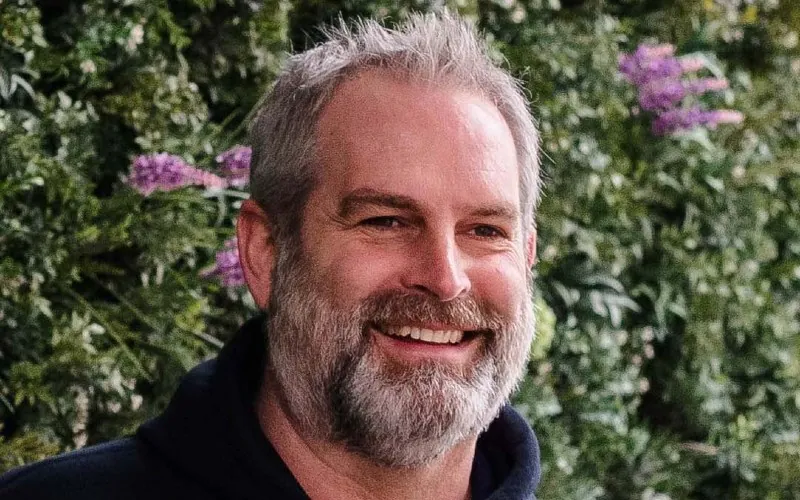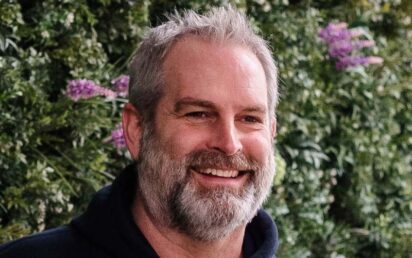As the tech ecosystem matures, there are ever more ways to raise the capital which is a lifeblood of a startup business looking to achieve scale.
Rory Cameron, founding CEO of Gendius, has experience of most of them. Based in Alderley Edge in Cheshire, the health data and insights business now develops algorithms that enable earlier identification of metabolic diseases and earlier interventions to transform outcomes for patients.
As with many MedTech startups, however, the road to identifying its niche has been a winding one. Founded in 2015, it set out to build a remote management platform for diabetes – intellin – after Cameron’s co-founder Chris Genders developed diabetes. It then joined a boot camp at the Alderley Park science and innovation campus.
VC investment
“It was one of those typical things where you build your business canvas and, at the end of the process, you pitch to a group of people with the idea that they rip your business to pieces and tell you it’s not going to work. You then rebuild and come back stronger,” Cameron tells TechBlast.
“But after our pitch, we had a VC wanting to invest! That was a weird situation because we’d self-funded the business for two years – no salaries, the usual thing – and we’d never asked for money from anyone. So we ended up with about half a million pounds of VC money.”
That funding came from the Catapult Ventures GM&C Life Sciences Fund, which included Cheshire and Warrington Enterprise Partnership, Greater Manchester Combined Authority, Cheshire East Council, Manchester Science Partnerships and the directors of Catapult Ventures as investors.
Gendius – then something of a ‘sat nav’ for diabetes, as described by its CEO – also won a £300,000 Innovate UK research grant. “That was us off to the races,” says Cameron. “We then decided to do friends and family – it was the opposite to the usual process.”
Crowdfunding & angel syndicates
Two years later, it would buck a trend with a £500,000+ raise on Crowdcube. “Crowdfunding was very much something you did with devices or widgets, where you might get 10 of something if you invested in it early,” explains Cameron. “There wasn’t really anything there around apps and digital health – but again, people really got what we were trying to do.
“That worked really well because the investment is syndicated, so you only end up with one name on the cap table – it doesn’t get messy.”
Whereas Catapult’s investment was vital in the early days, it posed a problem as the business evolved. “We fell into that trap of having an early-stage investor which didn’t have the money to follow on… you have to find a way to bridge yourself all the way to get to a Maven or a Mercia, who are looking for £1 million-plus ARR,” he acknowledges. “We’re not even there now… so who’s there to fill the gap?
“Our experience of angel syndicates was always very frustrating: you had individuals who were wanting to put, say, £20,000-50,000 into a business – relatively small amounts of money – but then wanting a huge amount of influence. It was like they’d been watching Dragons’ Den!”
He adds: “There are now a lot of interesting things coming through – Northern Gritstone and Praetura, for example, are beginning to try and bridge that gap in the North West.” Praetura Ventures now runs the Greater Manchester & Cheshire Life Sciences Fund.
Bridging the gap
When pharmaceutical companies found that SGLT2 inhibitor drugs – used to help control blood glucose in diabetics – also seemed to protect the kidneys and heart, Gendius partnered with Cameron’s former employer AstraZeneca in 2020 to develop an algorithm for identifying people at the greatest risk of chronic kidney disease.
“These drugs have now got licences for the prevention or the slowing of progression of chronic kidney disease and also heart failure,” Cameron says. “That was a real bingo moment for us.”
Cameron, who spent 10 years at AstraZeneca heading up UK sales and marketing teams, helped build up the UK presence of US MedTechs Genzyme and InterMune prior to founding Gendius. Contacts he made in those years would prove the bridge Gendius itself needed.
“Through building the business enough at that stage, I felt comfortable about going back and reaching out to various people I’ve worked with in the pharmaceutical industry over the years,” he says. “Many of them are now our investors.
“I love creating businesses, seeing people in the company grow and, sometimes, move on to bigger and better things. Some of these people I worked with are now CEOs and the like. I love that whole cycle of success and nurturing people.
“It’s great to see how success comes to positive people. I think, also, it’s a big warning in life: treat people how you want to be treated yourself. There’s no need to do it any differently: there’s room for all of us.”
For example, the workforce at Gendius is now on such a journey. “We have some revenue: in the last two years, we probably turned over about £200,000 each year. We have to have VC investment to keep us going… but it’s great to get the team to really understand that,” Cameron says.
“Some of them are quite young and haven’t been through this stuff before: it means they really feel that entrepreneur journey. And then as we make it, like we are now with this chronic kidney disease algorithm, everyone really feels like they’ve done something.
“I’ve worked for big companies where you’re just a little cog, and you don’t really see the impact of what you’re doing; whereas with us, everyone understands the mission, where we’re going. It’s a nice place to be.”
Investment talks
Gendius, which featured on our sister publication BusinessCloud’s MedTech 50 ranking, is now “going through final-stage investment talks with an investor from Manchester”, says Cameron, which “could be really good news in terms of the ecosystem and demonstrating that it doesn’t all have to happen in London”.
However he caveats: “The market is really tough – a lot of BioTech stocks crashed, a lot of people are following on the investments that they’ve already got, and they want to stabilise those for the next 12 to 18 months [rather than invest in another company].
“So no matter what your idea is, or even your traction, this next 12 to 18 months is proving to be the toughest time I’ve ever seen with regards to raising capital.”
MedTech 50 – UK’s most innovative medical technology creators for 2022


